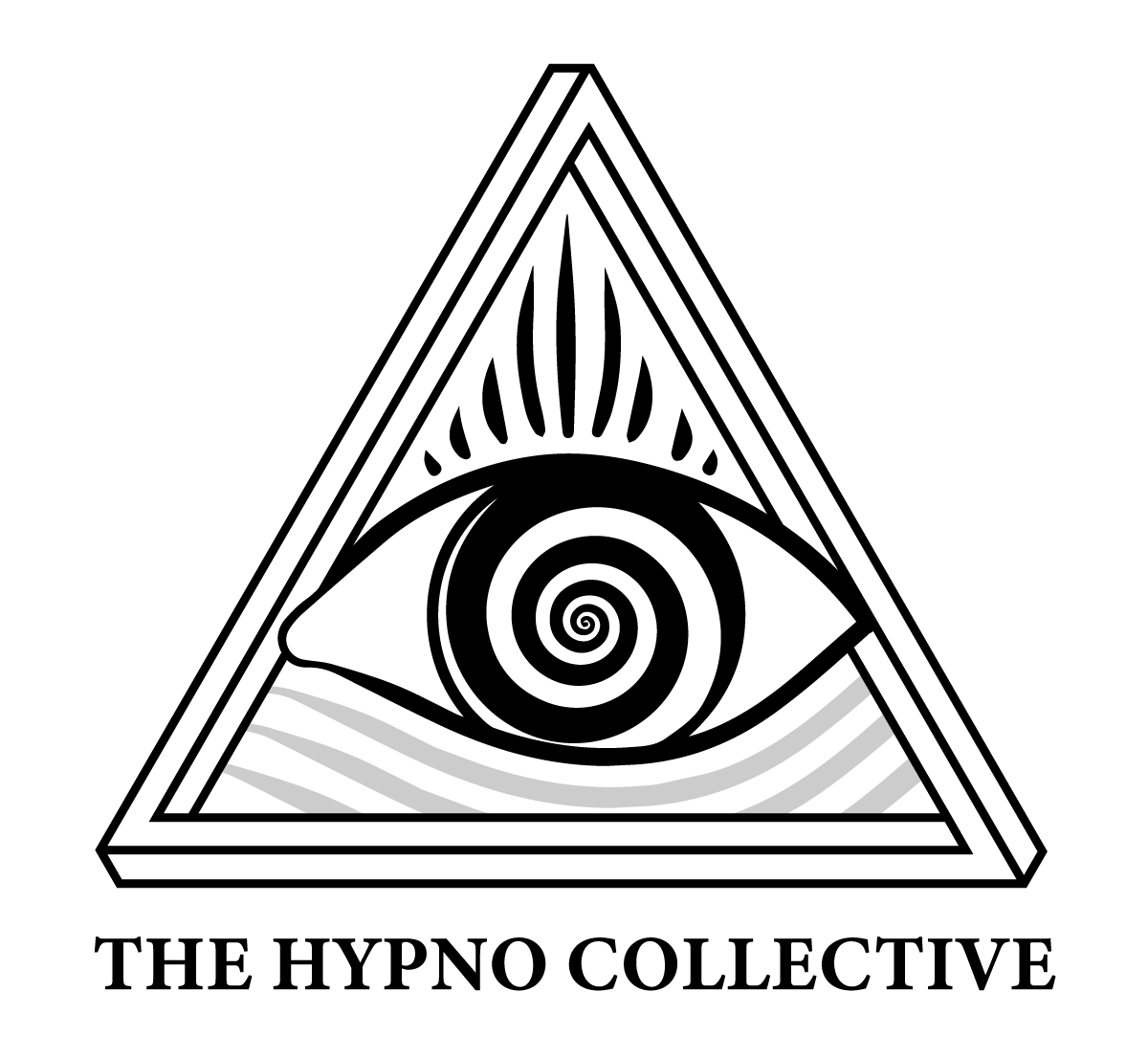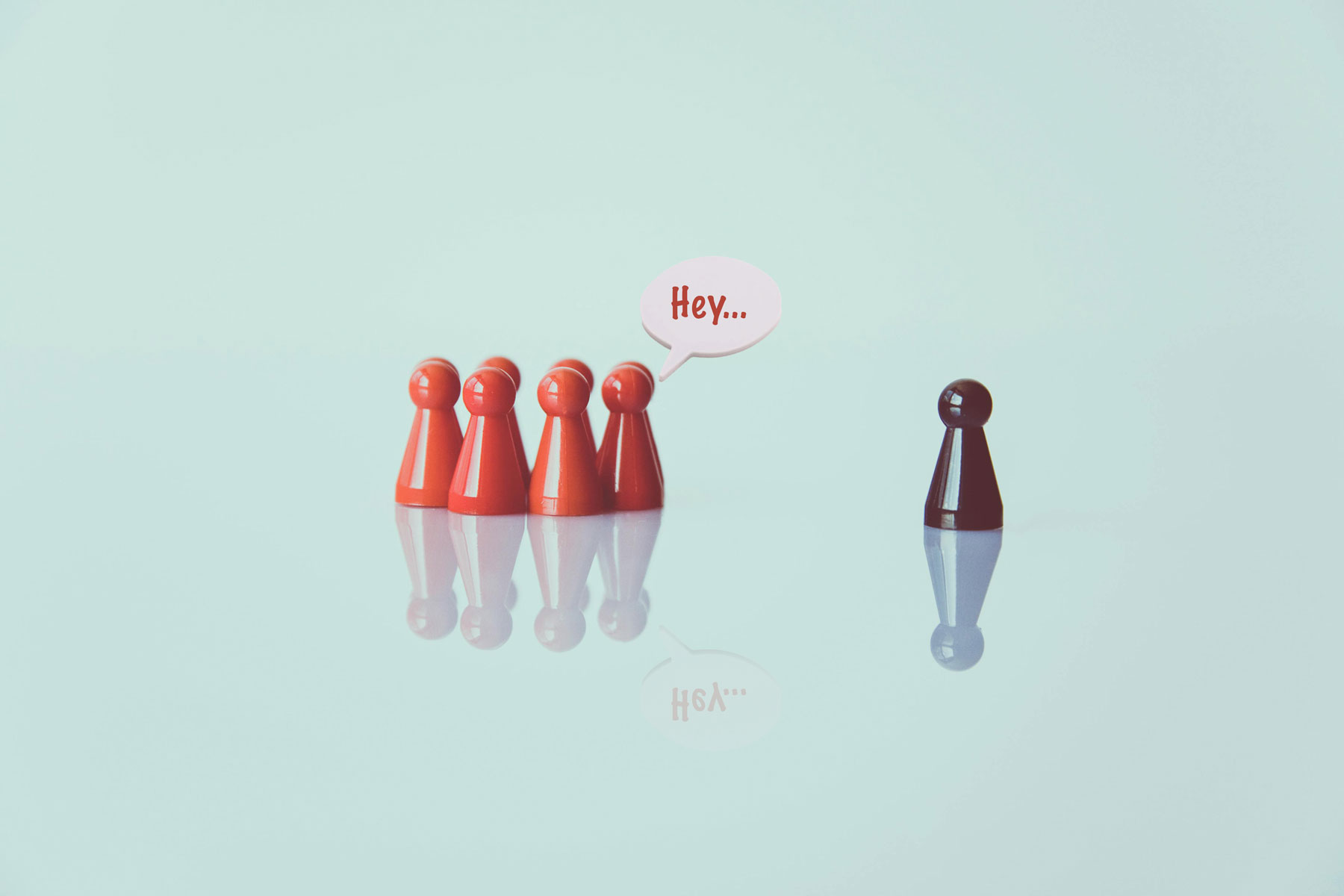
Article by Brainless
Content Warning:
consent violations, abuse, domestic violence, sexual assault, rape, victim blaming, gaslighting, manipulation, shame, ptsd, trauma responses, stigmas, fetishization of actual abuse, sex work, restorative justice, the carceral justice system
From a class delivered by Brainless in 2024
In this class, we will help people develop a greater awareness of harmful attitudes surrounding abuse within erotic hypnosis communities that silence survivors and perpetuate cycles of harm and abuse. We will discuss ways to address those issues while supporting and empowering survivors.
Who is this for?
This class is intended for survivors, allies, educators, community leaders and moderators. In this class we will cover topics from the perspective of a survivor.
For survivors: This class will brings attention to general issues like harmful stigmas/attitudes/language that survivors of abuse involving hypno kink often run into participating in erotic hypnosis communities. We intend for our class to be validating towards people’s general experiences with abuse in hypno kink and to initiate wider discussions about issues that directly affect survivors of abuse within the community.
For allies, educators, community leaders: We will bring attention to issues that exist within erotic hypnosis communities that may otherwise continue to be perpetuated or that may continue to go unaddressed. Our intention is to educate people about issues like harmful stigmas/attitudes that survivors of abuse involving hypno kink often face within the community and how those things often work to further perpetuate cycles of harm and abuse. We will educate attendees about ways they can improve the support they offer to survivors individually and on a community level.
Ultimately though, the person responsible for your ability to be hypnotized, is you.
General
- Develop a greater awareness of harmful attitudes surrounding abuse within erotic hypnosis communities that silences survivors and further perpetuates cycles of harm and abuse.
- Learn better ways to communicate safety practices to beginners in hypno kink to avoid spreading misinformation that can lead newbies into unsafe situations they are trying to avoid.
- Learn to rethink language used in discussions about safety and subject agency that perpetuate existing misconceptions, biases and stigmas relating to survivors and abuse in hypno kink.
- We will discuss attitudes and language that minimizes, dismisses, fetishizes, and invalidates survivors/the abuse survivors have endured and how subject agency is sometimes used to blame victims. As an example, I’m getting personal and including some paraphrased statements I’ve received in the form of comments or dms after disclosing my own abuse publicly:
- “Hypnosis can’t make you do anything you don’t want to do so they must have wanted it.”
- “Your mind will automatically reject suggestions you don’t want so it was probably just roleplay or they liked it.”
- “Subfrenzy! This is why people shouldn’t rush into things!”
- “If it really happened, why didn’t they go to the police?”
- “All of that could have been prevented if they didn’t rush and took time to learn and develop subject agency.”
- “If it actually happened they need to name who did it to help keep other people safe.”
- “Why did they wait so long to tell someone?”
- “Is it bad of me to say that’s hot? 🤤”
- “Their mind would have snapped out of hypnosis if they didn’t want it. I don’t believe any of that happened and if it did, they wanted it and are probably just having regrets now.”
- “This is what happens when you listen to those files 🙄”
- “This is why hypnosis has such a bad reputation and is banned on so many platforms. People get too excited to play and rush into things and get hurt and then people just think the kink is bad.”
How do those statements feel to read? Statements like the ones I gave above are (unfortunately) easy to find under abuse disclosures and in discussions relating to subject agency or abuse in hypno kink. Those types of statements and attitudes silence/dismiss victims and discourage other survivors from speaking up. This contributes to situations where abusers can continue to cause repeated harm undetected within hypno kinky communities.
- How do we take steps to remove abusers from the community when people are too afraid to disclose their abuse, nevermind name the person who hurt them?
- Why do people feel entitled to demand survivors name their abuser when it might directly endanger the survivors life?
- Do people realize that when they make dismissive statements that imply “that’s what happens” in reference to someone being abused while listening to files that are considered unsafe that they are essentially co-signing the idea that some people do things that make them deserving of assault or rape?
- When people say “hypnosis can’t make you do anything you don’t want to do,” do they realize the same statement is often weaponized by abusers to silence/gaslight their victims into believing they must have wanted what happened to them…because of course if they didn’t want it, their mind would have automatically rejected the suggestions. /s
- Many of those statements are just a repackaged version of the classic victim blaming statement: “why didn’t they fight back or scream or tell someone sooner etc” that has been historically used to silence, dismiss, and blame victims for harmful things someone else did to them.
- What does someone have to gain from making up a story about being abused? Why do people seem to act like it’s a common thing for people to make up these types of claims? Statistically false allegations of rape are extremely rare at around .62% of all rape cases (*see link in resources.) In a lot of places less than 2% of rapists are ever convicted of a crime. The rate of convictions is a big reason why people don’t report to the police and it is extremely harmful to imply that the only claims of assault/rape that are legitimate are the ones that have been reported to the police or that involve abusers that have been convicted of a crime.
Sometimes people say things with good intentions to try raise awareness/educate others about what could have led someone to be hurt, but it’s important to be mindful of the language used when having these conversations so that the conversations themselves don’t blame, silence, or re-traumatize victims, and/or create a false sense of safety/security in newbies about how subject agency/suggestion rejection etc actually work. Misunderstandings about subject agency/suggestion rejection can often stem from oversimplified statements like “hypnosis can’t make you do anything you don’t want to” and those misunderstandings can lead newbies to engage in riskier play they otherwise might not engage in if simplified concepts around subject agency/suggestion rejection were elaborated on.
If you are asking why someone didn’t speak up or reach out for help sooner, everything mentioned above is an example of why survivors don’t talk about what happened to them. It’s still rare that discussions ever center the abuser’s actions, and oftentimes it’s easier for survivors to just stay silent than to be re-traumatized by other people’s reactions to what happened to them. It’s important we learn to recognize how this language/these attitudes are harmful and how they can end up ultimately making hypno kinky spaces less safe.
Community and Dynamics
We will touch upon the effect trauma responses can have on subject agency/a person’s ability to assert boundaries or safeword within scenes in relation to our own experiences.
- People’s minds/bodies react in unpredictable ways if they enter trauma states like fight/flight/freeze/fawn. A person can have years of experience as a subject with excellent subject agency and they still may not react as they normally do if they have a trauma response to something abusive someone else is doing. Developing good subject agency is important for safe play, but it is harmful to assume or imply that people only get hurt or have their consent violated in hypno kinky dynamics because they haven’t taken the time to properly develop subject agency. ****Lilith and Kat talk about a relatively time incident involving spanking where neither one of us could safely safe word with our abuser at the time.
Learn how to create and improve spaces/systems within existing erotic hypnosis communities where survivors feel supported and safe enough to reach out for help or to report their abuser to mods/community leaders.
- Embracing harm reduction
- Resource sections/resource distribution
- Systems that allow someone to have the option of reporting their abuser/submitting evidence of abuse anonymously for ban considerations. Anonymity can be a lifeline for people who are too scared to report because of fears around retaliation, stigma, intimidation, and/or due to the social status/influence of their abuser within the community itself.
- Abusers sometimes seek out positions of power as community leaders or educators and power imbalances can contribute to victims being intimidated, silenced, mocked, harassed or dismissed. Abusers don’t abuse everyone they interact or play with. There can be fear that allegations won’t be taken seriously even with evidence. Retaliation/attacks by other members of a community against victims who accuse well known/respected people within the community of abuse/assault are a common fear that can keep people from reporting. Having a way to report anonymously helps in these situations.
- Avoiding extremes in certain discussions. Example: hypnosis being either good or bad or harmless/harmful. Like many other things, hypnosis can be used as a tool to facilitate abuse, but someone using hypnosis as a tool to abuse someone doesn’t make hypnosis or hypno kink as a whole harmful.
- Being mindful of consent when speaking on these topics. When a community values consent, it’s not always reflected when someone’s abuse disclosure is used as an example in discussions about safety without their consent first. Did you ask the person who disclosed their abuse if they are comfortable having their experience used as an example for why it’s important to develop subject agency or to be mindful of other safety practices?
- Sometimes when discussions use examples from specific abuse disclosures, those discussions can start to feel a bit like: “Here is a list of things this person did wrong that caused them to get their consent violated/assaulted/raped. Please be safe and learn from their mistakes.”
Is that type of discussion even productive or is it just another way we engage in classic victim blaming discussions like: “Well they wore a really short dress and they were alone late at night and I saw them at the bar before it happened…they should have known better. That’s what can happen when you go out alone dressed like that…it can give people the wrong idea. Please be safe! Don’t do what they did…I care about your safety and I don’t want you to get hurt like they did!”
Learn useful ways to support people in abusive situations/dynamics that help empower them to leave, and learn how to provide meaningful support after they have left. These personal perspectives are given to help people understand the possibilities of where someone might be mentally (feeling/thinking) at in a similar situation. Often times dominants/friends etc don’t understand why someone/a submissive don’t immediately leave an abuser when it’s pointed out they are abusive. Often times submissives/friends in an abusive situation don’t understand or aren’t in the place to process the concern of friends/family/a dominant etc.
- Kat and Lilith will discuss their experiences leaving the same abuser/abusive dynamic. We are doing this to help people understand what the mindset in those moments can be like and why just leaving isn’t always easy…leaving an abusive dynamic is statistically one of the times someone is most at risk.
- Kat will discuss what it was like to leave first, and what she did to help Lilith realize she wasn’t safe and that she also needed to leave.
- Lilith will discuss what it was like when Kat left, the difficulties she faced coming to terms with the realization that she was in an unsafe situation, and the things that Kat did that helped her eventually decide leave the same abuser/dynamic.
Lilith – Emotions upon exit:
- When Kat first left, I was resistant, I felt lost and confused and incredibly distressed. I didn’t want to continue to be complicit in her abuse, but coming to the realization that we were all abused and that I had simply tolerated that for a year was really difficult. It was a complete reality shift.
- I wanted to be there for Kat, to be there to support her, but at the same time, our abuser was demanding my support and sympathy too. I knew in my gut that this wasn’t a good dynamic, and that we needed to get out, but it felt like I was stuck deep down in a hole I had dug myself. Nothing felt right or okay, because everything was upside down.
- Many times during the dynamic, our abuser would put us in orchestrated situations where our own judgment would be downplayed and his would be held true. This conditioning encouraged me to distrust my own thoughts and feelings, as well as those of the other members of the dynamic, so that we were all solely dependent upon our abuser’s reality. I believe this conditioning also made it much more difficult to leave, as I had no confidence in my own gut (or in things like “girlcode”.)
- I also felt conflicted because some part of me thought that the solution was to get Kat to stop acting out, so that she wouldn’t be hurt or punished anymore, which was absolutely a mindset I developed in the cult.
- Kat continued working with me, and essentially deprogramming me, reminding me of his continual lying, manipulation and harm. She had to explain everything to me time and time again, because it just didn’t seem to stick in my brain. I feel like some part of me didn’t want all of the bad things to be true, I wanted to ignore the pain.
- During my last in person conversation with our abuser, he love bombed me so intensely that I couldn’t tell up from down. I left that conversation with his warped idea and a request from him: that I needed to manipulate/convince the other members of the dynamic that he wasn’t abusive or a bad person. I luckily knew enough at this point that I immediately filled Kat in on the details of this encounter, where she explained the manipulative components of said conversation and helped me set myself straight.
- For me, it was like we were all in a house that was on fire. Kat told us all that we were in danger, and that we had all been burned already. Our abuser was there to claim the opposite, that the building wasn’t on fire, but that Kat was lying to us. This situation was not easy to navigate on a thoroughly traumatized and conditioned mind.
- Through her continued persistence (and occasionally shock provoking words) “You’re fucking my rapist” I started to finally get the point. This definitely wasn’t pleasant though, it felt like shit. But it worked, and I eventually left the dynamic too.
Kat – Emotions upon exit:
- I was absolutely terrified, felt ashamed, and I didn’t know what to do. I also felt so isolated and alone because I didn’t feel like I could really go to anyone for support. I knew people in the community would probably blame me for what happened, especially because of the files he made me listen to and I had already detached myself from most of my irl friends outside of that dynamic. I didn’t know who I was and I didn’t feel safe. I didn’t think anyone would believe me because while I was in that dynamic, he made me post about how happy I was and how much I loved playing with him (which now I see was probably intentional.)
- I knew the dynamic was harmful but I also knew if I completely detached from the group our abuser would likely tell them to stop talking to me (and they would also likely stay in the dynamic) so I stayed around platonically and continued to hang out with my abuser and everyone else until everyone finally left him. I did this to keep a line of communication open. I framed it to my abuser as me taking a break because I was overwhelmed/felt like he needed to make changes to how he played. I asked Lilith to be there for some safety talks I initiated as a mediator, as I knew he would likely deny doing things that she/others had also witnessed.
- It was incredibly difficult to exist in any proximity to my abuser and during this whole time he still did things to fuck with me mentally whether that was using language or touch. He tried to pretend to be supportive and that just made me feel worse because I knew he didn’t actually care, he just wanted to seem like he did so people would stick around.
- I wanted to help Lilith realize she wasn’t safe but it was hard. When I brought up issues there was a lot of pushback and she would often default to defending him or taking his side even if she acknowledged something he did was harmful. She would parrot a lot of the things he said to me. I was patient and reminded myself that a few months ago I would have said the same thing and reacted in the same way.
- I brought up experiences Lilith and I both shared/that she was present for involving my consent being violated and tried to keep the focus on me instead of her. She would sometimes acknowledge how she knew he did violate my/another girl’s consent in a particular situation, but that wasn’t enough at the time for her to realize he was dangerous and she would sometimes get defensive of him after acknowledging harm he caused. In the conversations when she got very defensive of him, I would bring the conversation back to focus on who she was before meeting him and how she would have never been friends with/supported/defended a rapist. I kept the focus on the harm he caused to me/others because it was easier to get her to recognize that I was being abused as she witnessed that behavior, than it was to get her to realize that she was also being abused/to point out the harm he caused her. I knew her inner narrative was just as fucked as mine used to be and that she could rationalize/explain away the things he did to her, but that she couldn’t as easily explain away what he did to us.
- I was scared for her safety/her life as the abuse has escalated to situations where at times, it was life endangering. Having her reinforce things my abuser said was extremely painful but I didn’t give up on her because I wouldn’t have wanted her to give up on me if the situation was reversed. I was afraid someone was going to be seriously hurt again (or worse) and that fear was awful to carry but it also motivated me to stay around.
- I started pointing out exactly how he was manipulating me/her/us. At this time Lilith and our abuser were talking about issues I brought up on their own and when she told me about what he said, I would point out the type of manipulation techniques he was using directly. I encouraged her to read about those things on her own.
- I tried to be patient and supportive in any way I could. If she said something that hurt me I reminded myself that she was saying those things because he manipulated her to think that way and I didn’t take it to heart. I made sure to remind her that she had friends and family outside of that dynamic (and aside from me) that loved and cared about her. I tried to continue to be the same friend I was to her before I left.
- At the time she was doing so much for our abuser that she didn’t have time to do basic things like cook, run to the store or clean and she would often forget to eat. I would help her clean, cook her food, remind her to eat, run to the store with her to get food…essentially I was just also trying to make her life easier so she would even have the energy to look at the situation critically.
We will also discuss what happened after we left. We will talk about feelings like shame and fear that we experienced as we processed what happened and how isolated we both felt from the hypnosis community as a whole/the difficulties we faced exploring hypno kink again after we left that dynamic. We will discuss the types of support we received that was helpful/things we did that helped us recover and the ways we were able to disengage with the files our abuser made us listen to/his programming. We will discuss how to begin picking up the pieces after leaving an abusive dynamic where hypnosis was used as a tool to abuse.
How do you unfuck your mind? What things might be helpful to someone in a similar situation that we were in after we left?
“ Seeking out professional help/therapy is the most important thing we both recommend!”
Lilith – Unfucking your mind:
- At the start, I had no idea what I wanted or needed, as I had been so conditioned to ignore my own needs and desires, and to focus on his pleasure/needs. Rediscovering my own kinks, figuring out what turns me on, and relearning how to actually ask for what I desire has been a consistent ongoing project.
- For me, I kept nurturing my relationship with trance, although that was a rocky road to ride. I was constantly being triggered and having trauma reactions to all sorts of kink play. It was really difficult at the beginning, but got easier over time.
- I began to domme more. This allowed me to take back control, and to provide a pleasurable hypnosis session for my clients and partners. This really helped reinforce that hypnosis isn’t inherently destructive, and that I can share the way I love to feel with others, without life altering consequences.
- Dropping and trancing to files was still very important to me, so I began searching for and listening to files by other erotic hypnosis content creators. It was very healing to have that desire of finding pleasure in submission met by other creators in this community.
- I found it useful to focus on other headspaces and dynamics that didn’t trigger me so much. For me, that was a switch from bimbofication to pet play.
- My own personal play started to be more focused on comfort, safety, and care. I often still get triggered when engaging in kink/erotic hypnosis, but for me, that has manifested in me taking more frequent breaks during play to check in.
- When your entire personality gets dissected and rewritten over a year, it can be really difficult to find a sense of self amidst the chaos. For me, that’s been an incredibly slow process, as anyone recovering from trauma knows. I believe the key to this step is self compassion and self acceptance. I felt incredibly ashamed that I let myself be duped into an abusive cult dynamic, but I came to realize that it isn’t really that uncommon.
- I also found that watching cult documentaries was pretty cathartic during our cult exodus. It was validating to see that other people also get sucked into abusive situations/cults, and made it easier for me to accept my own perceived failings.
- Another practice that I found to be helpful was making sure that I was saying no, disagreeing, and safe wording. Those felt like rather foreign concepts to me after the dynamic. It was really important for me to freely express those things, and to have them received with open arms and compassion.
- On top of these things, I started to invest more time in my own self care. For me, that started with the Finch App, which allowed me to gamify daily good habits to begin rebuilding my best self.
- And lastly, therapy has been an incredibly important part of my journey. It’s helped me understand, cope with, and learn from this experience.
Kat – Unfucking your mind:
- Therapy. Soooo much therapy. Also beginning to chat with friends and family about what happened. Realizing they still loved me and were still there for me was important. The whole process to me feels like mourning as I’ve had to accept that I’ve lost years of my life, entire relationships etc and it’s been difficult to process and work through but therapy has helped a lot.
- Learning to say no again without being afraid to say no. Surrounding myself with people who make me feel safe when I set a boundary.
- Reconnecting with old hobbies and interests was super helpful to me. I wasn’t allowed to do a lot of the things I loved while in that dynamic and getting back into collecting old medical antiques, making art etc was super cathartic.
- Being patient and compassionate with myself. After that experience my inner voice sucked. Allowing myself the space to be a mess and to not have my shit together and to cry (while not feeling bad about it) was important. In the beginning I felt a lot of shame and self-blame.
- Asking for help, accepting help, and beginning to restructure my life: My entire identity/life had been shattered and I didn’t know who I was any more. It took about 6-months to a year to dissect a lot of how that experience affected me and I’m still working through it. After I immediately left, I tried to minimize the impact things had on me and continue on with life because I didn’t want anyone to worry and because I felt a lot of shame/self-blame. It was hard asking and accepting help from other people and even harder to look around and realize that some of the people/creators etc my abuser encouraged me to listen to and engage with weren’t good or safe people. It took awhile after I left to begin to have those realizations because I was trying so hard to regain a sense of normality. It was hard to realize I couldn’t just get back to normal because there were other situations adjacent to his abuse I needed to detach from as well. My “normal” had changed and it was difficult to accept that.
- I still love hypnosis and trance but when I left it was hard to continue to actively trance. The only thing that helped was taking a break from files and trance altogether but it also took months for me to figure that out. During that time I tried to engage with different files and to attempt to trance but it all felt bad and would often cause me to have flashbacks to traumatic things I had experienced. It’s hard to turn your mind off when relaxation itself triggers you to feel unsafe. Taking a break has helped and I am finally beginning to explore again. Showing myself patience and compassion when I struggle to trance has been very important.
- Activism. Taking action to do this class, to create harm reduction materials etc has been what’s kept me sane. Aside from when I was in that dynamic, I’ve always been the type of person that is outspoken and enjoys working for a useful cause. Trying to improve things that I’ve been able to identify as issues within the community from my own experiences with abuse and talking about that abuse has been cathartic. I want to make it easier to talk about these things and to help raise awareness about harmful attitudes surrounding abuse so that hopefully someday, other people will feel and be more supported when they disclose.
- Also gotta second Lilith on watching cult documentaries. I already knew a lot about abuse and cults before I stumbled into one but learning about the intricacies of coercive control through the lens of my experience helped me be able to do a better job verbalizing why some things he did were abusive and it’s validating to see the things he denied as harmful, being explained by a professional as abusive.
- Taking control over my appearance again. While in that dynamic I had to run any change of my appearance by my abuser and I had to look the way he wanted me to look. After I left I cut and dyed my hair and started wearing jeans again. It feels good to look in the mirror and be reminded that I can make these decisions for myself again without fear of punishment.
For all the reasons we have discussed so far, you can see why it’s important to learn how to recognize language and attitudes that shame, blame, and silence survivors or that perpetuate misinformation or a culture of injustice. It’s important to be mindful of your own attitude and the language you use when discussing these topics for those same reasons.
Files
- We will briefly discuss the benefits of embracing harm reduction when the discussion of stigmatized hypnosis files that are considered high-risk or unsafe is an issue within communities.
- The benefits of embracing harm reduction (as opposed to complete topic bans) relating to resource distribution and how it encourages community members to make safer, informed listening decisions.
- When has prohibition ever functionally worked as intended?
- We will briefly discuss how having spaces for people to ask questions, find resources, and to discuss specific issues relating to files that are considered unsafe helps to demystify those files and reduces curiosity/risk related attraction to them.
- Some people fear being shamed by members within the community because of the stigmatized files they may have been misled about or forced to listen to by their abuser. This contributes to victims being silenced and makes it easy for predators to stay under the radar/continue abusing people within the community. We will discuss being mindful of using shame/insults/vague warnings to encourage the avoidance of unsafe files. Listing out specific issues with unsafe files is more effective/productive than saying the files are super dangerous and definitely don’t listen. For many people, vague warnings about danger act more as an advertisement than a warning.
- Note: For people who may struggle to drop into trance or who have struggled to feel effects from the files they listen to, they may not even be attracted to the risk so much as they are attracted to the idea that maybe, finally, these files will work and they can experience trance/the things other people experience when a file works for them. After all if the files are so powerful and work so well that you can’t even talk about them, they must be pretty effective, right?
- If larger, established hypno kinky spaces don’t provide resources, allow discussions, or create space for questions about the specific safety issues of any file generally considered unsafe/high-risk, where will people go to find out that information? Will they end up in a space where people dismiss any concerns about the files in question or where misinformation about the safety of said files is passed on? Will they stumble into a space where discussion is allowed, but the files in question are knowingly/unknowingly misrepresented as perfectly safe and mostly risk free? Will they be encouraged to listen by people who don’t value their safety and know the files can cause problems? Does a newbie even know what green flags to look for when seeking out a community to explore erotic hypnosis? If the person is a newbie, will they have the experience/skill to be able to discern roleplay from reality when discussion about said files comes up, especially when they haven’t found any accurate/specific information on what the files actually intend to do/why people warn against listening?
- In lieu of how difficult it can be to find places to have discussions about files that are considered high-risk/unsafe: If a newbie finally finds a place to post their question about a specific file they were considering exploring and a “helpful” dominant dms them to offer reassurance, support, and guidance while they explore, will they believe what that person says (even if they are intentionally given misinformation) and possibly be led into an unsafe situation? If misinformation is intentionally given by a bad actor to encourage someone to listen to high-risk files for their own benefit, with the intention of using said files as a tool to abuse someone, how easily can that person find information that would make them aware that they are being mislead about the files they are being guided to listen to?
Without resources available in established hypno kinky spaces, people are more likely to have trouble finding information they need to make an informed decision to listen. This also increases the likelihood they might end up in an unsafe situation.
People will continue to explore and search for information regardless of whether or not a subject is banned. Banning discussions on files that are considered unsafe or high-risk under the guise of safety can actively lead people to spaces where they are more likely to be given misinformation or encouraged to listen to files they otherwise wouldn’t have listened to if they had access to proper resources. Banning discussions/not having access to resources on said files can make it harder for people in an abusive dynamic to realize they are being misled. Topic bans also increase risk related attraction to the very types of files communities are trying to dissuade people from exploring.
Reporting abuse
We will discuss hypnosis in the media/public abuse disclosures within communities and why some survivors don’t want to criminally report or prefer speaking to the media.
- Some reasons people don’t report to the police: fear of law enforcement/bad experiences dealing with the police in the past, loss of faith in the judicial system, low conviction rates or fears of retaliation. Bipoc, sex workers, trans/queer folk, immigrants etc all have obvious reasons to be distrustful/fearful of police in the USA.
- Lack of faith in the judicial system and fear of police/low conviction rates make some people more trusting of the media/journalists in terms of getting justice/raising awareness about their abuser. To many journalists are a lifeline. The ability to report the abuse/their abuser to a journalist with the option of anonymity can be really useful and important especially if someone fears retaliation/stigma/being shamed or if anxiety around how a formal police investigation could affect someone’s job, family, or schooling etc contributes to the reasons someone may not feel safe reporting their abuser to the police.
- Journalists also help put pressure on police to investigate claims of abuse if someone has criminally reported but appropriate action hasn’t been taken to look into claims/follow up/take action in a timely manner.
We will discuss how worry about public perception/fears about broad censorship of hypnosis online is projected onto survivors when abuse is discussed online/in the media and how that silences victims and perpetuates misinformation about who is actually responsible for broad topic censorship.
- The actual cause of hypno kink being censored: Widespread discrimination & censorship from banks/payment processors/websites etc. People tend to blame sex workers/kinksters etc for being censored/discriminated against instead of the existing systems set up that allow that stuff to happen.
- If you are blaming your local kinkster/sex workers/survivors/pr of a kink/misinfo about a kink for topic bans, you are ignoring the actual problem which is: corporations are allowed to discriminate based on their own arbitrary idea of morality that’s usually rooted in their ability to profit.
- Kinky things between consenting adults shouldn’t have to be palatable to the masses to avoid censorship. It’s important to be aware of attitudes that reinforce respectability politics around kink because that ultimately does nothing to address the root cause of topics like hypno kink being broadly censored/hypno kinky creators being deplatformed. Placing the blame on survivors who talk about their abuse for topic bans online is unjust/unfair, it contributes to people staying silent, and distracts everyone from the larger issues at play.
Creators/educators are often silenced because of fears their assault will be used to de-legitimize the work they do because of attitudes around subject agency.
- Examples: “They must have engaged in bad practice” or “If they actually knew what they were doing that wouldn’t have happened.”
- Creators may be afraid to come forward with abuse allegations because of how the person who abused them could retaliate by using their own social capital/connections to make it harder for the person they abused to get jobs/gigs etc. Creators sometimes fear that their own fans would turn on them if they disclosed abuse involving another more established/respected creator in the community.
- For people doing survival sex work in hypno kink, these things are even more scary as any loss of income as a result of the fallout from coming forward with abuse allegations could really fuck up someone’s life. People shouldn’t have to be afraid that naming their rapist/discussing abuse they endured will result in them not being able to afford food or medicine but it’s the reality a lot of people who do survival sex work deal with and often times it’s a contributing factor of why survivors who create content/do sex work don’t speak up about what happened/who hurt them.
We will briefly touch upon suggestion removal/cleaner files and restorative justice.
General Info
As we cover the topics mentioned above there will be time for questions as we go and there will be a brief break halfway through the class. A (downloadable) handout will be provided that contains helpful resources and that elaborates on the topics we plan to actually discuss above.
Bios
- Kat is a pro-domme, digital artist, and music producer. They enjoy creating audio files and visuals to assist people in their exploration of erotic hypnosis. Kat specializes in subjects relating to the occult, mindfulness, and gnostic trance, and they enjoy integrating those subjects into their personal practice and play. More recently, Kat has been working to help create and distribute educational resources in the bimbo hypno scene for harm reduction to encourage safer/informed play.
- Lilith is an online content creator, creating and fulfilling fantasies through erotic hypnosis. Their main goal is to make subjects feel safe, relaxed and pleasured throughout their work. They have been working alongside Kat to increase awareness of the issues in the hypnokink community, and to make the community a safer and more pleasurable place.
Resources
- r/domesticviolence has an excellent resource page with tons of helpful sites useful for people in the us/abroad: https://reddit.com/r/domesticviolence/w/index
- Free and low cost therapy for sex workers:
https://pineapplesupport.org/
- Supporting someone in an abusive relationship: https://www.thehotline.org/resources/supporting-someone-who-keeps-returning-to-an-abusive-relationship/
- Finch is a self care pet app that helps you feel prepared and positive, one day at a time. Recommended highly by Lilith:
https://finchcare.com
*STATS:
- Article that covers some stuff on false allegation statistics:
https://www.channel4.com/news/factcheck/factcheck-men-are-more-likely-to-be-raped-than-be-falsely-accused-of-rape







